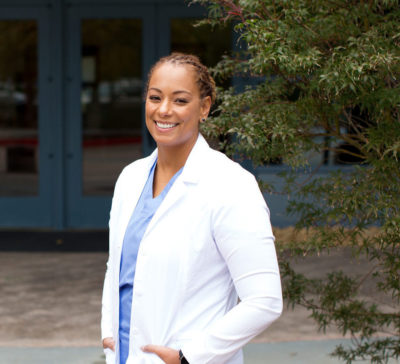It’s been said more than once that when white America gets a cold, black folks catch pneumonia.
Coronavirus has not shown any mercy—crashing the stock market, shuttering the sports and entertainment world and shutting down cities—but black people know from history that its effects will be felt the worse in their community.
Cwanza Pinckney, M.D., nationally recognized board-certified emergency physician, gave her insights on this pandemic and how it relates to the black community. For starters, it’s more than just the flu.
COVID-19 is an infectious strain of the large part of viruses that cause the common cold and other more serious illnesses such as severe acute respiratory syndrome (SARS-CoV). It’s spread through coughing and sneezing.
“I walk around in the flu every day without any concern or issue besides standard precautions, especially those in the medical field. We’re used to encountering infectious diseases on a daily basis multiple times a day. That doesn’t get us concerned,” Pinckney said. “Where we’re starting to see the concern is, especially since we had sort of a late response to this, that people can be exposed without being aware through droplets. People can transmit this virus to high-risk populations such as older people or those with lung problems without even knowing it.”
At the moment, there are currently not enough resources or tests available to treat those who may be infected. And yes, that includes black folks. Pinckney has received calls from friends who thought those with melanin were immune.
The NBA and other sports leagues suspending their seasons or canceling games may have driven the message home.
“That was a wakeup call because there’s no NBA game. So, ESPN was dry last night. We were talking about golf last night. I think that really hit black folks to say, hey, this is not a joke,” she said.
“I wish it wasn’t like that, but it is what it is. I will accept anything that draws energy and attention to people understanding the severity of this disease.”
We are all at risk but patient zero is Tyler Perry’s iconic fictional character Madea, Pinckney says.
“Smoked all her life and worked. I mean, she’s at a really high risk for catching the life-threatening symptoms of COVID-19.”
Pinckney advised people to keep using hand sanitizers and practice good hygiene. She also stressed self-quarantine to prevent the spread of this malady that is stressing the resources of hospitals.
Currently, there are not enough beds, ventilators or tests to be administered to those that need them. The disease is also daunting to those who do not know if their medical needs will be recognized and met.
“As it pertains to black people in the United States, we know we’ve had a higher level of racial disparity in health care since the beginning of time, since we’ve entered this country,” she said. “And I’m not believing that’s gonna be any different. It’s already hard to get a test now if you’re in an underserved community.”
The cost will also be a barrier. Many are impacted by poverty, lower wages and having jobs that are dependent on factors such as tips and maintenance of buildings that are closed. Coronavirus is a matter of health and economics.
“If we look across the spectrum, we definitely have jobs that tend to be self-limiting, meaning if they’re not critical they can be eliminated, and this can be devastating economically to many people. And for a lot of single working mothers who now are forced to deal with their children who are going to be at home, are going to be making tough decisions,” Pinckney said. “And for those people who depend on their job for their livelihood, there’s going to be a hesitation to go get tested. Number one, because their fear of not wanting to test positive so they can work, so they can sustain their family.”
Coronavirus will get much worse before it gets better.
“It’s going to manifest. I think the next, you know, probably four weeks is going to be a good indication of, you know, how quickly we’re going to see this in terms of its severity,” Pinckney said. “And that’s why everyone [needs] to take the precautions they are. I definitely believe it has the potential to get much worse.”
Pinckney understands the frustrations of isolation, but she is also taking her own advice. The good doctor moonlights as a self-taught master mixologist DJ but is now going straight home after her shift in the ER ends.
“For me and many other health professionals who would never ask people to do things out of just fear and terror, it is out of love for people, out of a true desire to help people. We don’t want to see this spread,” she said. “I also DJ on the side. I was supposed to be at South by Southwest. You know, it just is what it is, you know, and it sucks. But we just have to do it. It’s our social responsibility to do it.”
As medical professionals respond to that challenge, Pinckney does not want anyone to despair. Black folks have been joking and laughing through their pain as a coping mechanism since the beginning of time, through slavery and now #DatRona.
That’s the kind of TLC Pinckney wants as doctors work to respond to health-care needs. She is a believer in mindfulness. Stress, she said, can cause inflammation of the immune system.
“You got to keep your peace, beyond all things, because hysteria and panic will not help diagnose, treat or, you know, increase your likelihood to do well,” she said.
Originally appeared in The Grio.






